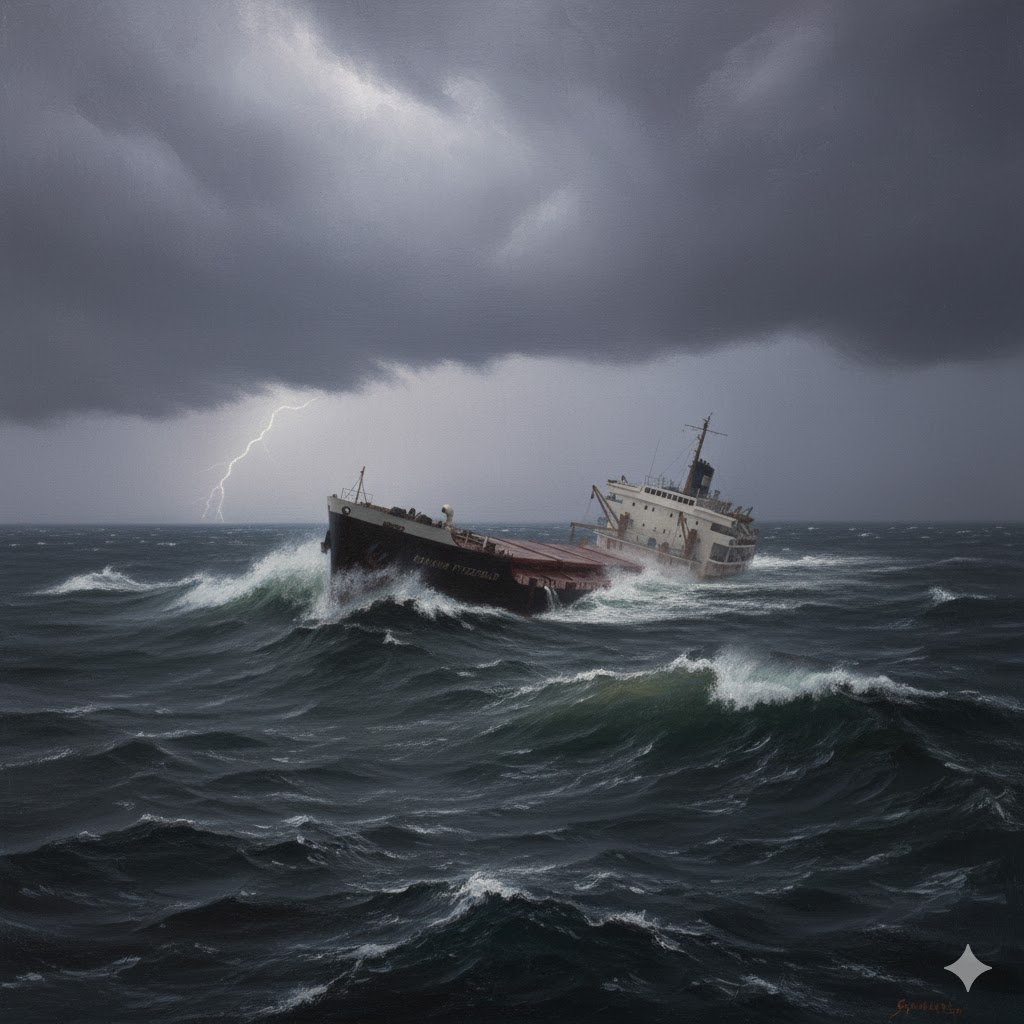On November 10th, 1975, the SS Edmund Fitzgerald disappeared beneath the icy waters of Lake Superior. All twenty-nine men on board were lost. There was no distress call, no clear cause, just a steel giant swallowed whole by the lake locals call “Gitche Gumee.”
A month later, Canadian songwriter Gordon Lightfoot was reading Newsweek when a headline stopped him cold. It called November “The Cruelest Month.” The article described the sinking of the Fitzgerald in sparse, factual detail. For Lightfoot, it wasn’t enough. He decided to give those sailors a proper memorial, one built not of stone, but of song.
Within weeks, he’d written “The Wreck of the Edmund Fitzgerald.” Released the next year on his album Summertime Dream, the song became both a chart-topper and a requiem. It isn’t flashy. There’s no chorus. Just verse after verse, like waves, telling the story as if it’s unfolding in real time.
Lightfoot pulled details straight from real life: Whitefish Bay, the “Witch of November,” and the Mariners’ Church of Detroit, where the bell rang 29 times for the men who never made it home. What makes the song so powerful isn’t just accuracy, though. It’s the empathy behind it. He once said he wanted the families to feel remembered, not sensationalized.
Years later, after learning new information about the wreck, Lightfoot changed one of the song’s original lines. He’d written that a “main hatchway caved in,” but when investigators found no proof of that, he rewrote the verse in his live performances. He didn’t want to lay blame where it didn’t belong. That quiet act of respect is part of what’s kept the song timeless.
Musically, it feels like an ancient sea dirge, minor chords, a slow pulse, and lyrics that sound like they’ve been echoing off cliffs for centuries. Even people who’ve never seen the Great Lakes can feel the cold and the loss in that melody.
Before Lightfoot’s song, the Edmund Fitzgerald was a regional tragedy. After it, the story became legend. He turned a line in a magazine into one of the greatest storytelling ballads ever written, one that still gives the lake a voice.
Because when a song tells the truth, it doesn’t fade. It carries.


